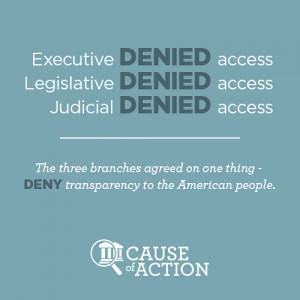Read the full story: Washington Free Beacon
The solicitation mentioned “community smoke-free policies” and tax increases on tobacco sales as worthwhile legislative objectives for subgrantees.
Dan Epstein, executive director of the government watchdog group Cause of Action, said his group investigated similar allegations of federally funded lobbying efforts financed by Obamacare and the 2009 stimulus bill.
COA dug into Centers for Disease Control and Prevention (CDC) grants through its stimulus-funded Communities Putting Prevention to Work program.
Ostensibly a “preventative health” project, CPPW “laundered money through so-called stealth lobbying coalitions, formed to skirt prohibitions on lobbying by non-profits, in order to promote local laws banning otherwise legal consumer products such as sodas, e-cigarettes, and fast food,” COA wrote in a report on the program.
“We already uncovered multiple organizations around the country that illegally lobbied with federal taxpayer dollars under the Communities Putting Prevention to Work program,” Epstein wrote in an email.
“We also know that entities in Missouri that received CPPW money have been offered federal funds by MFH efforts, so it is no surprise that the unchecked grant money going to MFH could now be used to violate the law again,” he said.


